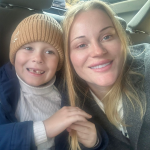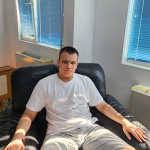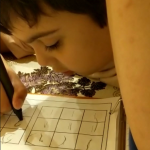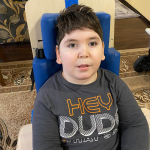Nootropic therapy for autism — reliable data from scientific research on the use of medications
Nootropic therapy drugs stimulate the central nervous system. Nootropics for autism are prescribed to activate memory and attention and to increase brain activity. The rationality of their use in modern medicine is questionable because conducted clinical studies led to negative results or were uninformative.
Diagnosis before prescribing nootropic drugs for autism
The doctor can prescribe nootropic drugs only after a comprehensive examination of the patient’s health status, consultation with a neurologist, examination of the medical history, and the course of pregnancy. Maybe consultation with doctors of other specialities — speech therapist, paediatrician, psychotherapist, etc. — will be necessary.
The use of nootropic therapy for autism
Nootropic drugs are stimulants that positively affect the body of a sick person. However, they are not characterized by a selective effect specifically on the brain, where ASD is localised. Nootropic drugs prescribed by a doctor to enhance speech activity can be useless for a child.
The drug may be really good, but the reality is that the pathogenesis of the disease is individual for each patient, as if the child is sick not with ASD but with some personal disease with special features.
In addition, drug treatment for autism with nootropic drugs can also have a negative effect. It can stimulate and activate aggression, sleep disturbances, irritability, stereotypical behaviour, etc.
Conclusions on the use of nootropic drugs for autism
It has been scientifically proven that drug therapy for autism is ineffective and can harm a child’s body. It is noteworthy that nootropic drugs are prescribed only in some countries. Doctors in countries with a developed medical system, such as the USA or the EU, do not even suggest that they can be used to treat autism because they are medications with unproven effectiveness. But experienced doctors around the world are interested in alternative and experimental methods, and cell therapy deserves special attention.
Replace nootropic therapy with cell transplantation at the Mardaleishvili Medical Centre — it is an opportunity to significantly increase the effectiveness of treatment.
Stem cell treatment for childhood autism
It must be stressed that this technology is radically different from others since it is capable of restoring the structure of the brain at the cellular level. All other methods affect the disease by creating new neural connections and imparting skills, but the structure of the brain with genetic abnormalities remains unchanged. Therapy for autism spectrum disorder with stem cells is different because it replaces damaged brain cells with anatomically correct analogues. Due to this, treatment occurs. You can get answers to all your questions free of charge using the feedback form on the clinic’s website.
Appreciate the excellent possibilities of correcting autism with stem cell therapy — your child will be able to start a full, confident, active life!
Autism Treatment Center Videos
Autism treatment with own stem cells
Cord blood association congress
International Quality Crown
Autism Treatment Reviews
Autism treatment with own stem cells
The story of Alessandro (6 years old)
Autism Patient Testimonial - Stem Cell Treatment
Clients Testimonials

Feedback from Igor, David’s father (12 years old) Read More

Feedback from Olga, Fedya’s mother Read More

Feedback from Natalia, Radomir’s mother (15 years old) Read More

Feedback from Esther, Samuel’s mother (8 years old) Read More

Feedback from Abibe, Selim’s mother (7 years old) Read More












